Hialeah moves to crack down on the rental of RVs amid a housing crunch
- Oops!Something went wrong.Please try again later.
The Hialeah City Council on Tuesday moved to crack down on property owners who are leasing RVs parked in residential areas to renters who are using the campers as cheap housing, calling the practice a growing nuisance.
Amid complaints about noise and potentially unsanitary conditions, the City Council voted to stiffen the city’s laws regarding recreational vehicles in residential areas, which already deem it illegal to rent out campers in residential neighborhoods.
“Why do we have to turn a blind eye? It is illegal to live in an RV in the City of Hialeah,” Mayor Esteban “Steve” Bovo, Jr. pointed out.
The legislation, which could become law during a City Council hearing scheduled for Jan. 23, would create a series of new requirements and regulations for people parking RVs and boats outside homes. Among them:
▪ Owners of recreational vehicles, boats or vessels would be required to register them with the city, without fees.
▪ It would be prohibited to have more than one boat or more than one RV on the same property.
▪ It would be prohibited to park recreational vehicles in the backyard of a home. They would have to be parked perpendicular to the sidewalk, so that code inspectors can observe from outside a property if there are any violations.
▪ Parking the vehicles would be allowed only at single-family homes, and would be prohibited at duplexes and townhouses, for safety reasons.
▪ Connecting RVs to water or sewage lines would be prohibited, except for purposes of “washing” the recreational vehicle for periods of no more than 30 minutes.
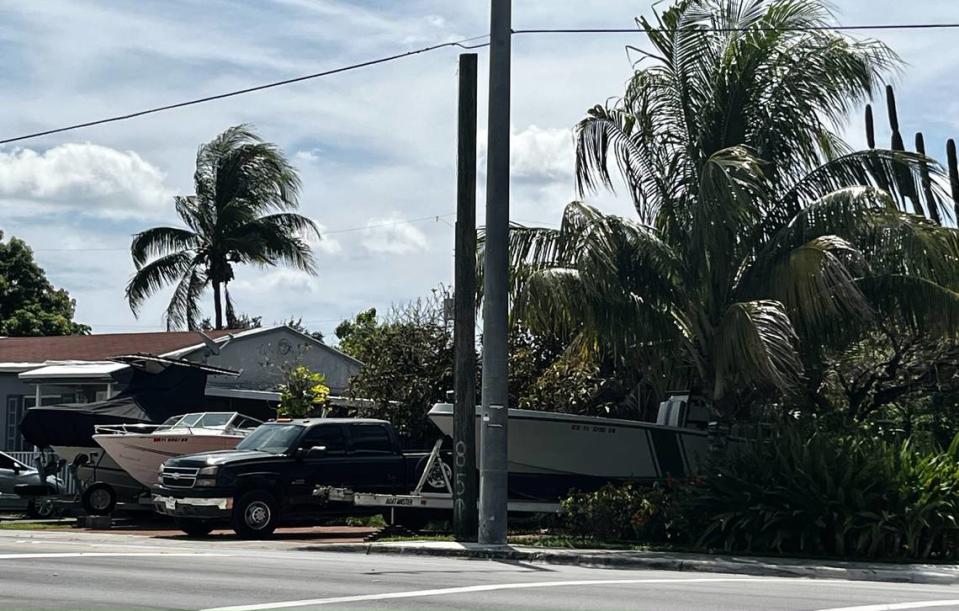
Campers parked in the city are limited to 33 feet in length. Owners of properties deemed to be in violation would be informed that their electrical, water and sewage service will be suspended.
Hialeah property owners would be given a period of four months to register and comply with the new guidelines, with the city considering requests for variances in cases where RVs don’t fit on the side or in front of a property. Violators would be subject to a civil fine not to exceed $500.
Complaints
The rental of recreational vehicles as temporary housing has been illegal in Hialeah since 2007, but the problem has become more pronounced in recent months amid a crisis of affordable housing in the city and throughout Miami-Dade County.
Several Hialeah residents told the council Tuesday that the practice has interrupted their ability to enjoy their homes.
Tamara Reyes, who lives on East 39th Street next to a couple that has been renting out RVs, said the people living in the vehicles play loud music and drink beer all day.
“We have lived peacefully for 10 years until my neighbors decided to rent and connected two trailers for the new residents of Hialeah, the migrants,” said Reyes, 52.
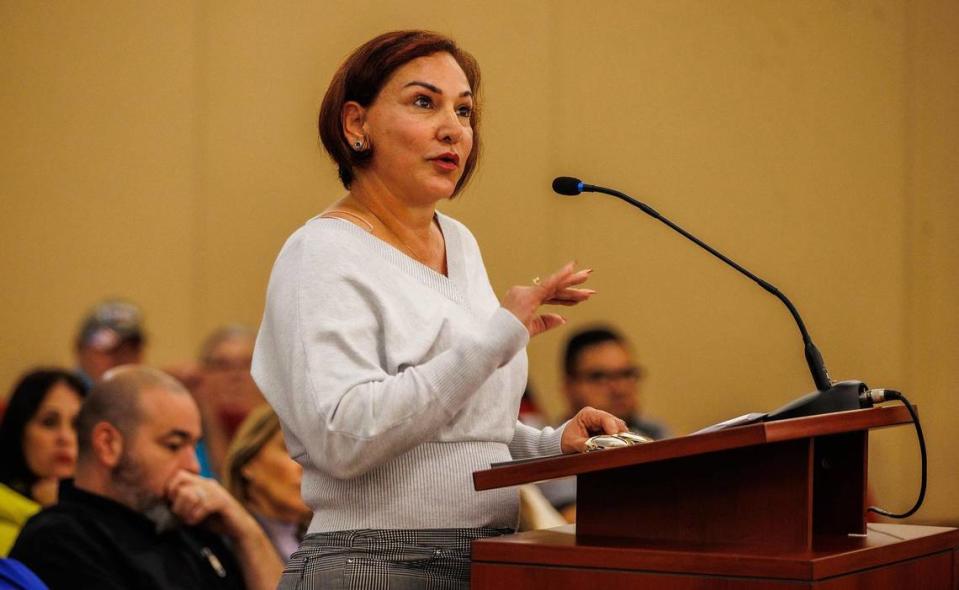
“We have been suffering for the last year due to this situation,” she said. “We have to call the police practically every day.”
Reyes, among several people who spoke in favor of the proposed ordinance, said she has felt threatened by the RV renters since calling the police.
“If this is not controlled, it will be time to move from Hialeah,” Reyes said.
Reyes’ neighbors, Elisa Naranjo and her husband, José Manuel López, said they had already been punished by the city, which they said turned off their electricity more than a month ago. The couple, both 70 years old, were informed on Dec. 8, by FPL workers that their electric service would be suspended by city orders because they illegally rented two recreational vehicles that they had parked at their home.
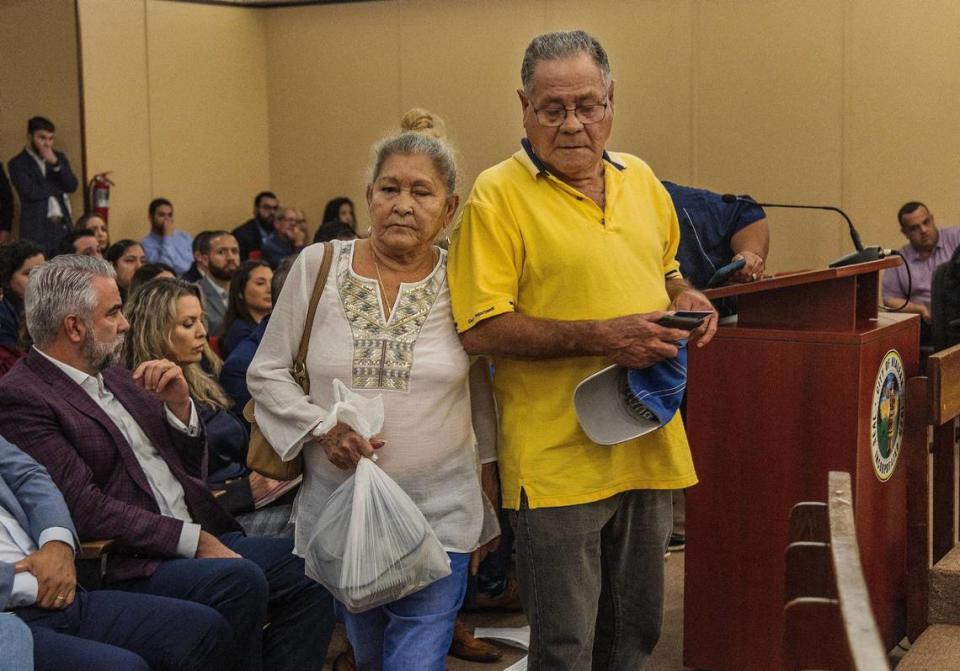
Building Director Alexis Riveron said in an interview that the city cited the couple’s property as an unsafe structure due to illegal electricity, water, and sewage connections. According to Riveron, the city protocol in that situation is to place a notice at the residence and then contact FPL to have the service cut off.
Naranjo said she had been mistreated by the city, noting that she is blind in one eye, and her husband is on oxygen.
“I haven’t had electricity for 32 days. Is that humane?” Naranjo asked Bovo.
“No,” the mayor answered, “but when illegal things are done the city has to respond.”
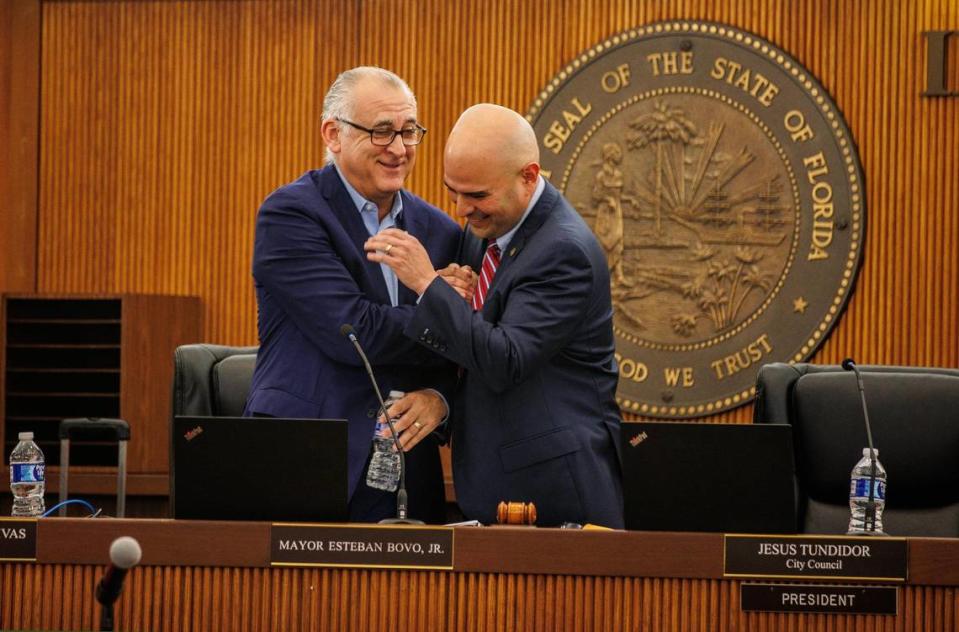
Hialeah’s housing crunch
The rental of trailers, motor homes and even boats in Hialeah has been described as an epidemic that has to be controlled before it is too late.
Although the city does not have data on complaints or reports about the issue, there is some photographic evidence from inspectors about violations involving boats and RVs that are either blocking sidewalks, too close to homes or connected to the sewer. Some properties have had multiple RVs parked outside.
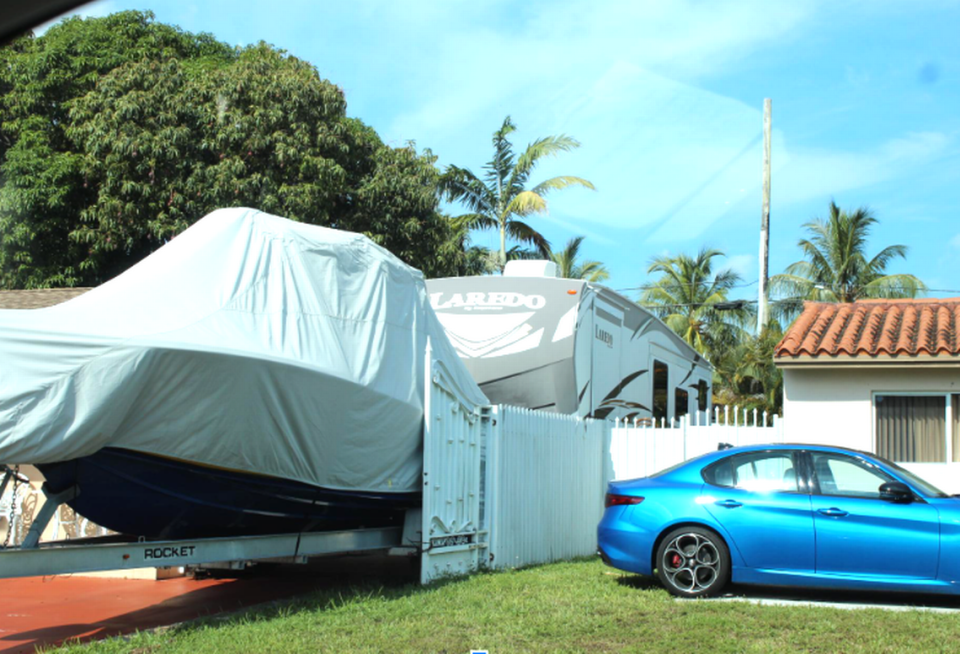
“In our office we have seen crazy things, people stealing electricity from a meter, or connecting the sewer to a lake,” Bovo said.
The city has 198 people with RVs registered with the Florida Department of Motor Vehicles, but the mayor estimates there may be the same number of people who bought RVs at auctions and are renting them for $1,500 to $2,000 a month.
At the same time, Hialeah approved the creation of an Affordable Housing Task Force, that seeks to solve housing inequality in the majority-Hispanic city, acknowledging a problem.
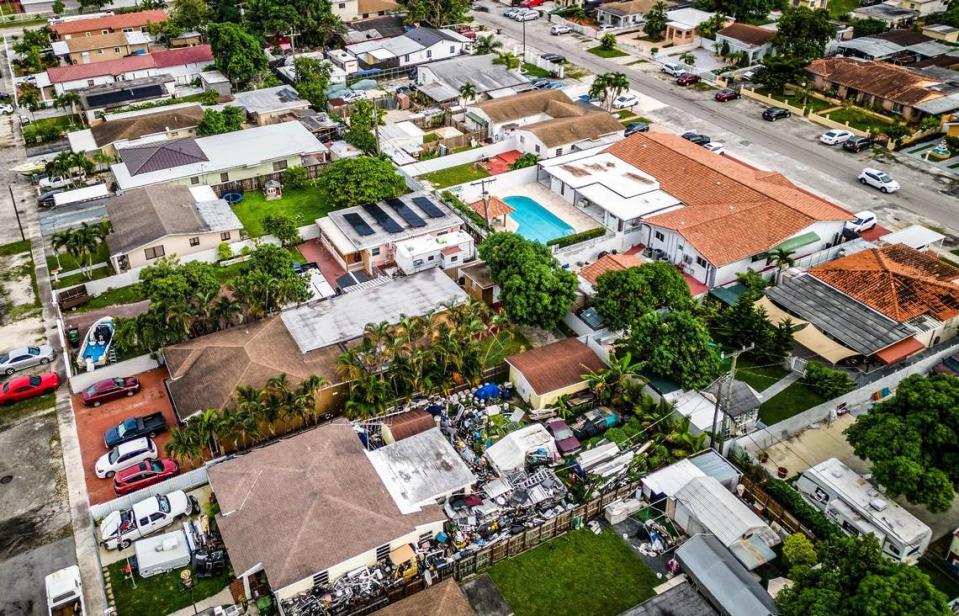
Naranjo and López, the elderly couple, explained to el Nuevo Herald that they began renting RVs because they needed money. They said their retirement pensions are barely enough to live on. Each receives $1,000. They said their home mortgage costs them $1,827.
“Now I’ll have to get to job,” López said.
Councilwoman Angélica Pacheco favored the proposed new legislation, but asked what will happen to people who are living in RVs because they cannot afford an apartment. Pacheco asked to create a plan that prevents more people from being left on the street after the measure is implemented.
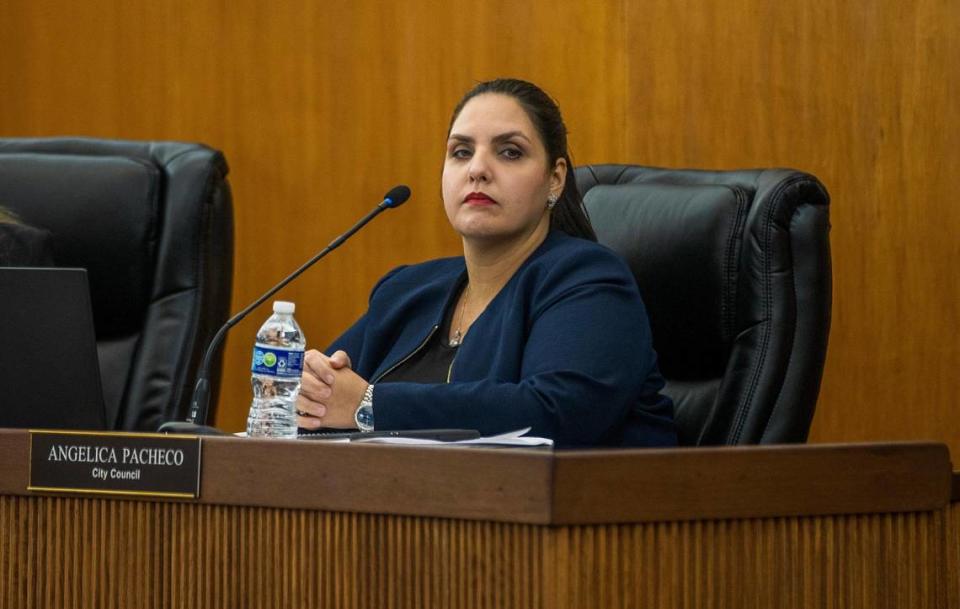
Bovo, however, asserted Tuesday that the majority of people renting out RVs are doing so at investment properties and do not live in the city.
“You have people who live outside the city and have Hialeah as their treasure. They buy a house, divide it in two, and add two or three RVs that the ordinance allowed them to have. They basically use the purchase of that house to make a profit,” he said.
Bovo said he would hire additional code inspectors and ask them to work nights and weekends to prevent “Hialeah from becoming a ghetto.”
“If it costs me my job,” said Bovo, in Spanish, ”it is what it is.”

